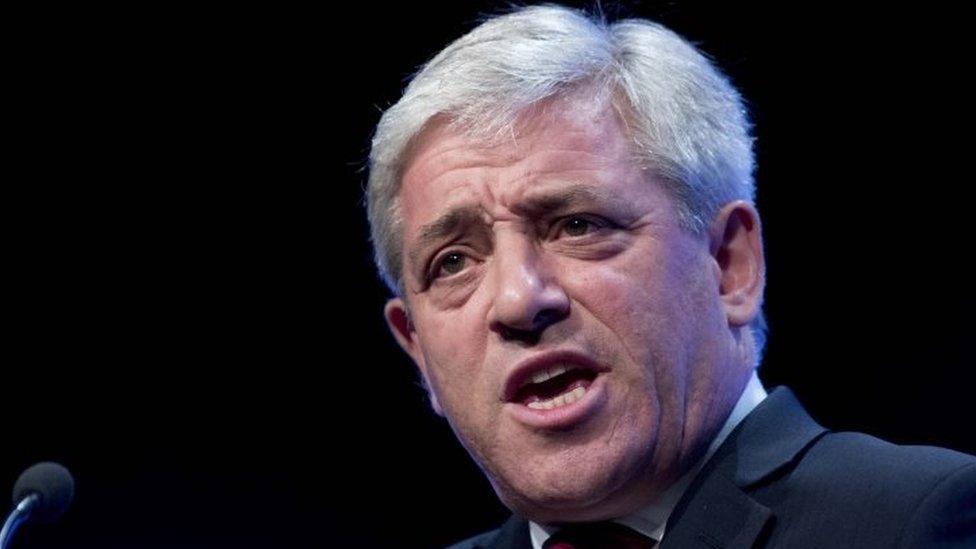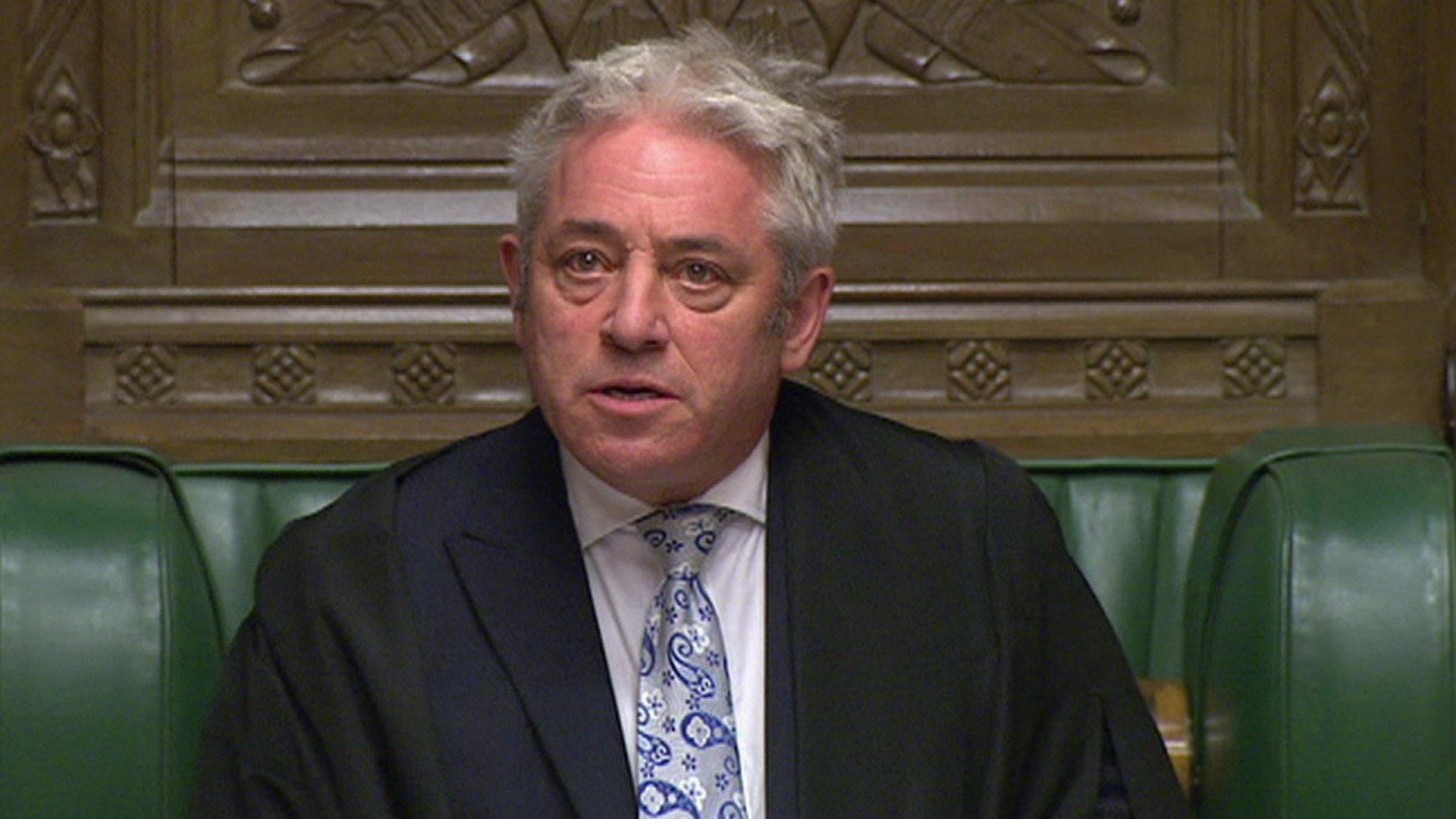Brexit: How John Bercow could end EU referendum gridlock
- Published

Over the coming weeks we may find that a figure supposedly above the political fray becomes a highly significant force in the heart of that fray.
Step forward John Bercow, Speaker of the House of Commons, who has the ability to exercise considerable power over the nature of Brexit.
The speaker gave a taste of his frustration with the government last week, when he spoke of the "discourteous" way in which the vote on Theresa May's Brexit deal was postponed.
Those words of irritation fell short of sanction, but in parliament's final week before Christmas, we could see the first interventions by the speaker before more decisive action in the new year.
For months, senior parliamentarians have been telling the speaker he will eventually have to act on the grounds that there will be gridlock in the final phase of Brexit.
I wrote last month that one senior MP told him directly parliament would have to take over because the government would become "enfeebled".
Such conversations strike fear into the heart of cabinet Brexiteers who believe that the speaker is an unreconstructed Remainer determined to thwart the referendum result.
Friends challenge this view on the grounds that he is still good friends with high profile Brexiteers, notably his former Tory colleagues Julian Lewis and Charles Walker.
MPs who have spoken to Bercow suggest that he is dismissive of the idea of taking sides in the Brexit debate.
John Bercow says ending the Brexit debate without a vote will be seen as "discourteous" by many MPs.
He is understood to be troubled by the Brexit stalemate which stems in part from the way Theresa May behaves as if she commands a comfortable majority in parliament, when her party has a minority of MPs who are themselves deeply divided on Brexit.
This background means the speaker believes he may have a duty to intervene. But he will choose his time with care and his actions will be graded.
A sure-fire way to ensure an immediate and decisive intervention is if it is clear that a majority of MPs want to challenge the government.
So when the DUP joined the other opposition parties in calling for the publication of the government's Brexit legal advice, their amendment was called by the speaker - and then passed by MPs.
Other interventions, which could come this week, break into two phases:
Before a meaningful vote on the Brexit deal
After a meaningful vote on the Brexit deal
Interventions by the speaker would be of huge significance, because the government usually controls the business of the commons.
But if he believes there is deadlock - and the government is standing in the way of parliament agreeing a consensus view - then it is understood he feels he would have no option but to act.
One idea floated yesterday by Liam Fox and Damian Hinds is the "indicative vote" - that the speaker could allow MPs to hold a series of vote on various options.
Such a vote was held on how and when parliament should be removed from the Palace of Westminster to allow the estate to be refurbished.
The government's idea failed to win support. And so a more radical proposal, drawn up by the Labour backbencher Meg Hillier, was tabled and passed.
Corbyn's 'veto'
The indicative votes would probably include: the Norway Plus option of remaining inside the EU's economic structures but outside its political structures; a "Canada plus" option of a more traditional free trade deal with the EU; no deal exit from the EU; and a further referendum.
At the moment all of these options would be rejected by MPs, with a further referendum probably attracting the highest support.
That is because all of those options - including a further referendum - are currently opposed by Labour leader Jeremy Corbyn.
He will only countenance a further referendum, if Labour fails to secure a general election. Labour supporters of a further referendum are slowly realising that Corbyn holds a veto over their cherished goal.
The Labour leader has the decisive say in determining whether the party will have succeeded or failed in triggering a general election because he is the key figure in calling a no confidence vote in the government.
By failing to call a no confidence vote, Corbyn could say that the referendum stage of Labour's Brexit policy has not been triggered.
But Corbyn might find that Theresa May is not the only political leader who could find John Bercow can make life uncomfortable.
The speaker could undermine Corbyn's "wait and see" on a referendum, by accepting a no confidence motion in the government tabled by other opposition parties.
If the opposition parties lose that vote then the referendum stage of Labour's policy would be triggered.
In recent years speakers were often ceremonial figures, whose period in office were punctured by moments of parliamentary drama which rarely changed the course of history.
This speaker has already rewritten the rules during his decade in office - and he may be about to do so in a truly dramatic way.
You can watch Newsnight on BBC 2 weekdays 22:30 or on iPlayer. Subscribe to the programme on YouTube, external or follow them on Twitter, external.
- Published10 December 2018

- Published12 November 2018